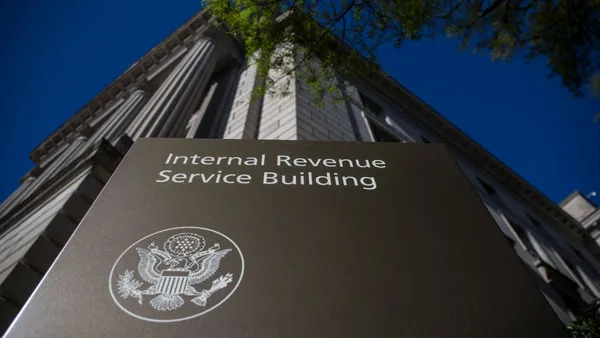Dive Brief:
- Corporate boards face a 2022 proxy season likely to be more contentious than last year as investors step up their activism on environmental and social issues, the Conference Board said, adding that shareholder support for proposed board candidates may further decline.
- “The 2022 proxy season promises to be even more challenging for corporations,” the Conference Board said in a report, warning of “an increasing risk of collision between companies and shareholders, especially on lobbying — including climate-related lobbying — and the use of corporate funds for direct and indirect political contributions.”
- “Shareholders are submitting proposals focused on whether companies’ political activities are consistent with their stated positions on climate change and social issues, and the proposals in these areas are likely to go to a vote and to receive high levels of support,” according to the Conference Board.
Dive Insight:
CFOs and their boards at publicly traded companies face rising pressure to improve performance on environmental, social and governance issues as institutional and retail investors plow record levels of capital into businesses deemed sustainable.
Global ESG investment soared 55% to $35.3 trillion in 2020 from $22.8 trillion in 2016, according to the Global Sustainable Investment Alliance. The total will probably exceed $50 trillion by 2025, making up more than one third of the projected $140.5 trillion in global assets under management, according to Bloomberg.
“Investors are using their votes against directors to express dissatisfaction on areas such as board diversity and ESG oversight and, at smaller companies, with governance practices that are inconsistent with best practices at large companies,” the Conference Board said. “Expect more environmental and social (E&S) shareholder proposals to be submitted, to come to a vote and to receive greater support.”
During the 2021 proxy season, shareholders filed 348 E&S proposals and voted on 158 of them, compared with 314 and 151, respectively, in 2020, according to the Conference Board.
A proxy defeat at Exxon Mobil underscored for CFOs the hazards of shrugging off shareholder concern about sustainability. Engine No. 1, a hedge fund, won investor support in May for replacing three directors on Exxon’s board.
Engine No. 1 rallied retail and institutional investors — including BlackRock, State Street, Vanguard and California Public Employees Retirement System (CalPERS) — by arguing that Exxon had wasted capital on oil projects that yielded meager returns while ballooning company debt. It also said Exxon lacked a solid plan for shifting to cleaner sources of energy.
Shareholders this year will probably stand most firmly behind ESG reporting proposals, the Conference Board said. “Negotiating the withdrawal of a proposal will likely be hardest to achieve on topics including lobbying, say-on-climate, gender/racial pay gaps, and racial equity/civil rights audits.”
Investors will probably file climate-related proposals across all industries, not just carbon-intensive sectors, the Conference Board said. Also, a company will more likely draw fire from investors if its lobbying and political contributions contradict its commitments on environmental and social issues.
“Boards and senior management should be familiar with how their lobbying and both corporate and PAC contributions align with stated positions on issues,” according to Paul Washington, executive director at the Conference Board’s ESG Center.
“Doing so will help prepare companies to engage with shareholders and may identify areas where companies can better align their public policy positions with their corporate citizenship positions,” he said.
The Conference Board compiled the report with Russell Reynolds Associates, the Center for Corporate Law and Governance at Rutgers University and ESGAUGE, an ESG analytics firm.












